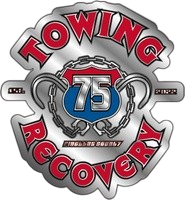The automatic reaction during a breakdown would be to call a professional tow company. During moments of high urgency, several people tend to make basic mistakes, which result in increased stress and monetary costs for borrowers. A wrong selection of a towing company or failure to follow important procedures may create vehicle damage and extended downtime.
Avoid These 7 Mistakes When Calling for a Tow Truck
This article suggests that you avoid these 7 mistakes when calling for a tow truck. The process involves preparing yourself and selecting the proper towing service to obtain smooth service delivery during all the stress that towing already represents.

1. Not Knowing Your Exact Location
The first dispatcher inquiry when telephoning for roadside help is always, “What is your present location?” People typically lose their composure when these situations happen, so they provide imprecise location information to delay timely assistance. Safety first requires you to confirm your exact position by inspecting nearby landmarks, street signs, and highway mile markers when notifying the towing company.
Use the mapping application Google Maps or similar programs to identify your location at the roadside. The dispatcher benefits from such information because it creates a faster assistance response, streamlines the process, and minimizes your exhaustion while sparing additional pressure.
2. Skipping Research on Towing Services
A frequent error happens when drivers immediately dial the first towing company from their quick search results or accept directions from people around them. Some towing services adopt different methods of operation, thus making unlicensed or inexperienced companies lead to vehicle damage while charging high fees.
Start by checking online reviews and looking for trusted platforms with excellent ratings for towing service providers. Verify that the tow truck company holds an official license and sufficient insurance coverage while accredited by professional standards. A trustworthy provider selection brings reassurance and professional quality service for your automobile.
3. Forgetting to Confirm Costs Upfront
A crucial mistake occurs when people do not request a cost prediction from the towing service before starting the towing process. Emergencies allow several towing companies to exploit customers by adding deceptive charges that exceed basic rate guidelines. You will encounter high fees when the service concludes because you did not ask for an upfront price estimate.
The price quote must show the exact breakdown of all costs, including the mileage rate, hook-up fee, and extra fees for after-hours and longer-distance service. The dispatch service should learn the total towing charges in advance so it can guarantee fair costs.
4. Choosing the Wrong Type of Tow Truck
Various types of tow trucks exist, but selecting an inappropriate match for your vehicle will generate substantial damage. When hook-and-chain tow trucks service all-wheel-drive or luxury vehicles, there exists a high possibility of causing drivetrain destruction or generating costly maintenance requirements.
Communication with the towing company concerning your vehicle identification and precise damages is essential when booking their services. Based on your situation, professionals will recommend flatbed vehicles, wheel lifts, or traditional towing trucks. Adding this simple precaution reduces dangerous situations and guarantees professional handling for your car.
5. Neglecting to Secure Personal Belongings
Car owners often leave personal items inside their vehicles before towing, yet later experience inconvenience and potential loss of their valuable belongings. The tow truck transporter makes your car difficult to reach after it has been placed onto the truck until the truck arrives at its final location.
The arrival of the tow truck requires you to take a brief period to collect your essential belongings, including wallets, keychains, mobile phones, and important documents. Check under all seats and compartments to verify that you have not forgotten any of your belongings.
6. Not Understanding Your Roadside Assistance Coverage
A lack of understanding about your roadside assistance coverage through insurance, credit card companies, or auto club associations (such as AAA) will result in unanticipated money spent. Many drivers select any towing service at random but discover their roadside assistance plans do not offer full coverage.
Examining your policy and calling your service provider should be your first actions before requesting a tow truck. Towing partners approved by these providers exist alongside specific directions regarding reimbursement of expenses. Your knowledge about roadside plan coverage ensures money savings and clarity when emergencies strike.
7. Forgetting to Ask for a Receipt
People prone to emotional distress are prone to missing essential follow-up steps after a successful tow. The main mistake occurs when you do not request an all-inclusive receipt from the tow truck driver. A receipt serves multiple purposes: it certifies the service completion and supports both insurance claims and reimbursement requests.
Customers should obtain complete invoices containing information about mileage and cost, company name, contact details, and payment methods. They should keep these invoices so that future disputes and confusion are impossible.
Conclusion
Requesting a tow truck appears simple, yet seven common errors will decrease your everyday stress during car breakdowns. Your likelihood of achieving a smooth experience during vehicle transport increases when you establish your position and select an ethical provider. In contrast, costs covering personal property and insurance arrangements should be established.
Preparation is the primary solution for resolving confusion. Save emergency towing contacts from trusted providers near your location before adding them to your contacts list, and check if your auto insurance or roadside aid offers any coverage benefits.
Understanding and planning the situation before a breakdown occurs makes everything better during unexpected breakdowns. Calmness is essential, and preparedness and safety should be your prime concerns.
